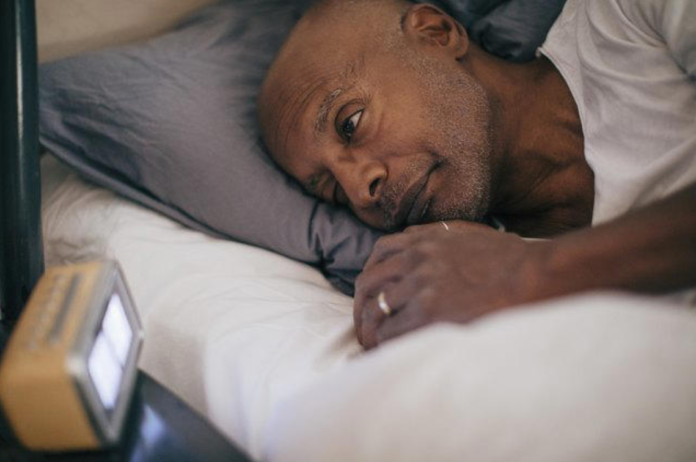
Sleep latency is the amount of time it takes you to fall asleep. “It measures the period between the moment a person lies down to sleep and the onset of sleep,” Brad Raper, MD says.
Your sleep latency can give you some insight into your overall sleep quality. It can also have an effect on how much total sleep you get. Falling short can leave you sluggish or irritable during the day.
And over time, sleep deprivation could increase your risk for health problems like obesity, high blood pressure, diabetes, heart disease and depression, per the National Heart, Lung, and Blood Institute.
So, How Long Should It Take You to Fall Asleep?
A healthy adult with normal sleep latency typically takes between 10 and 20 minutes to fall asleep, Dr Raper says. Less time could mean you’re excessively sleepy, while more might mean you’re having trouble falling asleep.
Short Sleep Latency
Nodding off in less than five minutes is a sign you’re really tired, according to the Cleveland Clinic.
Sleep deprivation is the most likely culprit (meaning: you’re generally not getting enough sleep), but less often, it could be a sign of a sleep disorder like narcolepsy or a circadian rhythm disorder, according to Sleep Medicine Pearls.
Long Sleep Latency
Regularly taking more than 20 to 30 minutes to conk out is often a sign of insomnia, Dr. Raper says. That could be driven by stress, anxiety, depression or even chronic pain.
In some cases, the culprit could be a sleep disorder like restless leg syndrome.
Certain medications can also make it harder to fall asleep, including stimulant medications, bronchodilators, nonsedating antidepressants and beta blockers, per Sleep Medicine Pearls.
You can get a pretty good sense of how long it takes you to fall asleep with simple self-observation, Dr. Raper says. One option is to keep a sleep diary where you record the time you go to bed and the time you estimate that you fall asleep.
If you’d rather not worry about keeping track of the time, many wearable fitness trackers and smartwatches (like the Apple Watch, Fitbit Charge and Garmin Vivosmart) have features that can estimate the time you fall asleep.
“They use sensors to detect movements and heart rate patterns to detect when you fall asleep,” explains Dr. Raper.
Both options can give you a general idea of how long it takes you to nod off.
But if you want to know your exact sleep latency and understand what’s affecting your numbers, you’ll need to undergo a sleep study conducted by medical professionals, Dr. Raper says. During the study, your care team can perform a Multiple Sleep Latency Test (MSLT) to see how long it takes you to fall asleep in a dark, quiet environment.
How to Improve Your Sleep Latency
If it’s taking you longer to fall asleep than you’d like, start by taking a look at your sleep hygiene and bedtime habits. Often, behavioral changes alone can make it easier to doze off faster, experts say.
Per the Centers for Disease Control and Prevention (CDC), it’s a good idea to:
- Stick with a consistent bedtime and wake time. Keeping a regular schedule makes it easier to fall asleep when you get into bed.
- Keep your bedroom dark, quiet and comfortable. Draw the shades, run a white noise machine and set the thermostat between 60 and 68 degrees.
- Steer clear of devices before bed. The blue light from your phone or tablet can keep you up. Swap scrolling your device for a relaxing activity like taking a bath, journaling, yoga or reading.
- Avoid eating late. Try to eat dinner on the earlier side and pay attention to your portions.
- Keep tabs on your alcohol and caffeine use. Both can disrupt your sleep, especially when you have them close to bedtime.
- Get some exercise. Being active during the day can help you feel more tired when it’s time for bed. If you prefer to work out in the evening, that’s OK too, experts say. Just wind things down within an hour of bedtime.
On the other hand? If you find yourself conking out really quickly most nights, you probably need more sleep, Dr. Raper says. In that case, moving your bedtime earlier might be enough to help you get the rest you need.
When to See a Sleep Specialist
Let your doctor know if you’re consistently having trouble falling asleep or you feel tired during the day, even after making changes to your sleep routine. They make recommend doing a sleep study to check for underlying problems like insomnia, sleep apnea, restless leg syndrome, circadian rhythm disorder or narcolepsy.
MORE:



![I make money even in my sleep – Kelvyn Boy shows the way [Video]](https://www.adomonline.com/wp-content/uploads/2023/03/maxresdefault-35-218x150.jpg)

